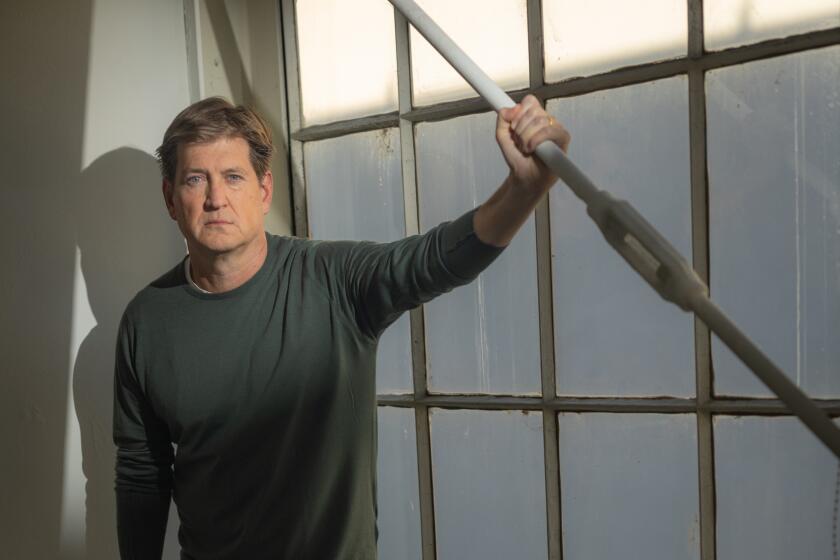Online Music Services Besieged
No one knows which online music services will hit the jackpot, but the major record labels are determined to take their share of any Web company’s winnings.
That’s the message that the labels are sending through a series of high-profile lawsuits against online music firms. A half-dozen lawsuits--including ones against Napster Inc., MP3.com and now Launch Media Inc.--have narrowed the services that can be offered without a license from the labels, while also setting a high price for licenses.
The suits are having a chilling effect on the online music business, slowing dozens of entrepreneurs who wanted to sell music in new and intriguing ways, said Anthony Berman, a San Francisco attorney for EMusic.com Inc. and other online music companies.
“Technology innovators are quite scared about the prospects of devoting time to things that may ultimately engender lawsuits,” Berman said. The threat of litigation also has dried up funding, he added, because venture capitalists “are not willing to fund a lawsuit.”
Representatives of the labels say they filed the lawsuits simply to enforce their rights and the rights of their artists, and only after negotiations with the online firms failed.
“Nobody wants litigation,” said Jay Samit, an EMI senior vice president. “It is a last resort to protect people’s right to make a living.”
EMI, whose artists include Miles Davis, Kenny G and Radiohead, has been the most active in granting licenses to songs, signing deals with dozens of Web companies for a variety of services. As a whole, however, the major labels--Universal, Sony, BMG, Warner Music and EMI--have been slow to grant licenses for interactive services, such as online jukeboxes, Napster-style song sharing or downloading by subscription.
That’s why online music companies feel like they’re stuck in a bottleneck. The major labels have sued to force them to obtain licenses before trying new ways to distribute music on the Web, yet most of the labels haven’t been willing to grant licenses for those services.
One reason for the slow pace is that the labels fear they won’t set the right price for their licenses or choose the right technology, said Jonathan Potter of the Digital Media Assn., a trade group for online music and video companies. Given that online music is in its infancy, the labels have little way of knowing what consumers will embrace or reject and whether services will supplement CD sales or supplant them.
“No one knows who’s right,” Samit said. “And there are those [labels] who are conservative and those who are willing to plow ahead and know we’ll make some mistakes.”
Only MP3.com is offering an interactive service authorized by all five major labels, and that service merely lets users create online jukeboxes of songs they already have on CD. The company tried to offer the My.MP3.com service without licenses from the copyright holders, but the major labels and music publishers quickly sued and won in federal court.
MP3.com didn’t obtain the licenses because of the court case, Samit said--it got them because it had a huge amount of cash from going public. The fees that MP3.com agreed to pay subsequently became the going rate for online storage services, but the price was so high that other companies abandoned the business, used stopgap solutions or went bankrupt.
Suits by Labels Target 3 Kinds of Services
In addition to online music-storage businesses, the lawsuits brought by the labels have targeted three types of online music enterprises:
* Song-swapping services. The labels won a preliminary injunction against Napster, the most popular song-swapping service, and a lawsuit against Scour Inc. of Beverly Hills that effectively drove that company out of business. Last week, the major labels filed suit against the companies responsible for the Aimster service, which enables users to share all types of files with other users on their instant-message “buddy list.”
One legal challenge for the labels in the new case is that the files sent on Aimster are encrypted, so the company can’t tell what its users are trading, noted Bruce Forest, a security expert for Sapient, a technology consulting company. Aimster can see what its users have on their computers to share, but there’s nothing illegal about having a digital music file on one’s PC, Forest said.
* Personalized Web radio services. Universal, Sony, BMG, EMI and Zomba Recording Corp., a top independent label, also sued Launch Media last week, on the grounds that it didn’t have the license it needed to operate its online radio stations. In particular, the labels argue that Launch must negotiate for an “interactive” license, rather than relying on the blanket license available to non-interactive Webcasters.
The price of an interactive license is sure to be higher than that of a non-interactive one because, in the labels’ view, an interactive service is more likely to replace CD sales than promote them. The online companies and the labels also are fighting over the fees associated with the blanket Webcasting license, with federal arbitrators expected to settle the issue.
* Directories to sites where music can be copied for free. The labels have accused MP3Board Inc. of providing links online to “thousands of pirate copies of some of the most commercially successful recordings in the world.”
To Potter of the Digital Media Assn., the labels have used lawsuits as “a part of an overall strategy [of] ‘We’re not going to license,’ or, ‘We’re going to license very, very carefully.’ ” The lawsuit against Launch, he said, is just the first salvo on a new front, Webcasting.
Personalized radio services are particularly threatening to the labels’ planned subscription services, which would let consumers listen to specific songs or customized playlists for a fee. Some analysts expect those services to become the dominant form of online music once the average consumer has an always-on, high-speed connection to the Internet.
But Matt Oppenheim, senior vice president of business and legal affairs for the Recording Industry Assn. of America, insisted that the labels aren’t lawsuit-happy.
“We have spent an enormous amount of time trying to sit down and chat with Webcasters whom we think are in violation of the law,” Oppenheim said. “We have begged them to not make us sue them.
“Instead, they tried to insert this issue into the ongoing copyright [office] proceeding. They left us no choice.”
More to Read
The biggest entertainment stories
Get our big stories about Hollywood, film, television, music, arts, culture and more right in your inbox as soon as they publish.
You may occasionally receive promotional content from the Los Angeles Times.











